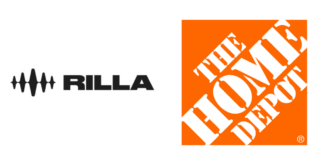As another outlet for promoting growth and the success of the True Value brand, the company has started the process of owning and operating retail stores. True Value purchased its first store in Palatine, Illinois, in March 2024.
 Eric Lane, senior vice president of retail store development, sat down with Hardware Retailing exclusively at the Fall Reunion to share the strategy behind the new program and how it will encourage growth and solidify the True Value brand.
Eric Lane, senior vice president of retail store development, sat down with Hardware Retailing exclusively at the Fall Reunion to share the strategy behind the new program and how it will encourage growth and solidify the True Value brand.
Hardware Retailing (HR): What is the reasoning behind this new corporate-owned store program?
Eric Lane (EL): We have recognized for the past several years that our stores continue to struggle with succession plans, and so we want to be supportive of our stores and provide opportunities. Typically, we would provide another True Value store the opportunity to acquire a store up for sale, but we were finding that less than 15% of the time it would be a good match for another True Value retailer to acquire, based on variables like location and other logistics. So us purchasing those stores keeps them under the True Value brand.
Also, as we were introducing our Brand+ program, we knew that the more stores we have operating in a manner supportive with the brand, the more successful it would be. If we think about our overall strategic fit around the brand, commonality of products and building scale, we can help influence that if we own the retail.
HR: Has this first store purchase been successful so far?
EL: The store in Palatine has allowed us to test our programs and theories. From a merchandising and commonality perspective, quickly after we purchased the store, we refreshed assortments to support our overall strategy, as well as those niche categories, such as live goods.
From a merchandising perspective, we’ve been able to increase margins in the store through the operational disciplines we applied. So in a time when transactions are down, margins and profits are up at this store.
HR: How will these stores continue to champion the importance of community True Value retailers embrace?
EL: One of the premises behind our model is that we don’t want these stores to be known as corporate stores. Local community feel is so important to us, so at the Palatine store, we retained all of the staff. So when customers walk into the Palatine store, they’re seeing the same cashier, the same assistant manager. Other than updated merchandise, I don’t believe any of the customers would know that the store is owned by somebody different, which is extremely important as we move forward.
HR: What is the strategy for growing these stores and acquiring new ones?
EL: Now that we’ve done the one store, we’ve announced more broadly that we are in the business of acquiring stores. We have a pipeline for future acquisitions, and as we roll into 2025, I would say it is a geographic acquisition strategy. We want to build scale in a region and build a model around our distribution network, which helps us from a service perspective in terms of having a regional manager and regional staff members. Our goal would be to retain as much of each store’s staff as possible, but have a regional manager running that region who can bring operational discipline to help the stores be successful.
HR: How do you see this program bolstering True Value overall as a company?
EL: From that perspective, when we think about the three-way relationship between retailers, vendors and True Value, this program will bring that all together. When our merchants work with our vendor partners, they’re negotiating for the ability to come in and influence 4,000 independent stores to take on that product. As we move forward, we’ll be able to, with our vendor partners, place products in our corporate store footprint and then be able to tell our members that we’ve tried this and provide feedback to both vendors and our retailers.
Also, we absolutely believe there are operational disciplines, such as marketing, we can implement and test that will allow us to create synergies and savings as we move forward.
 Hardware Retailing The Industry's Source for Insights and Information
Hardware Retailing The Industry's Source for Insights and Information






